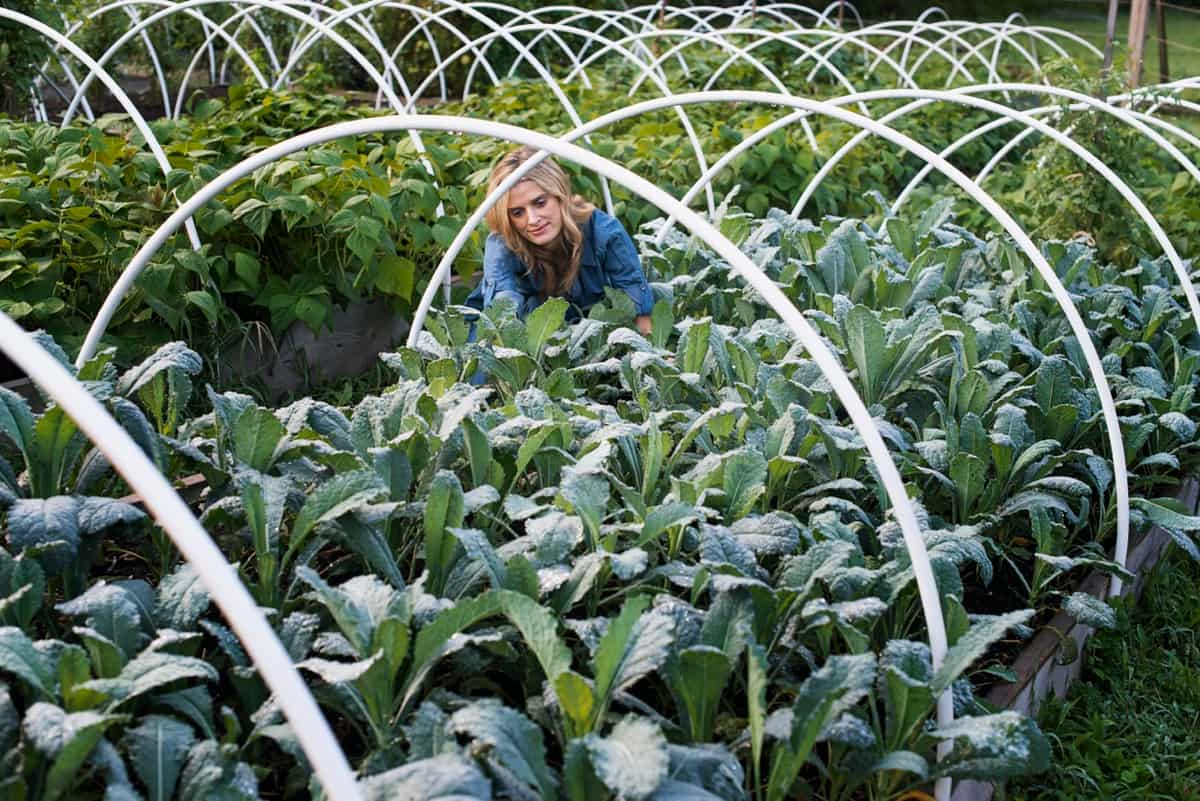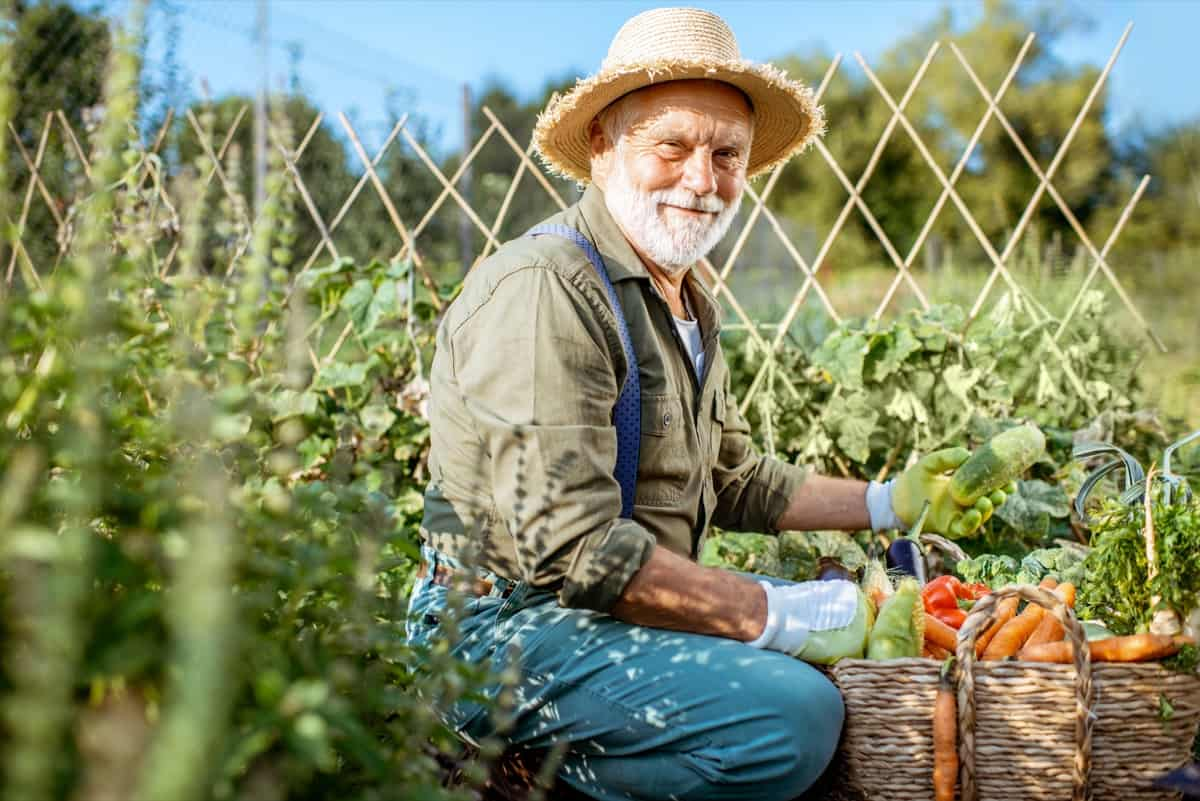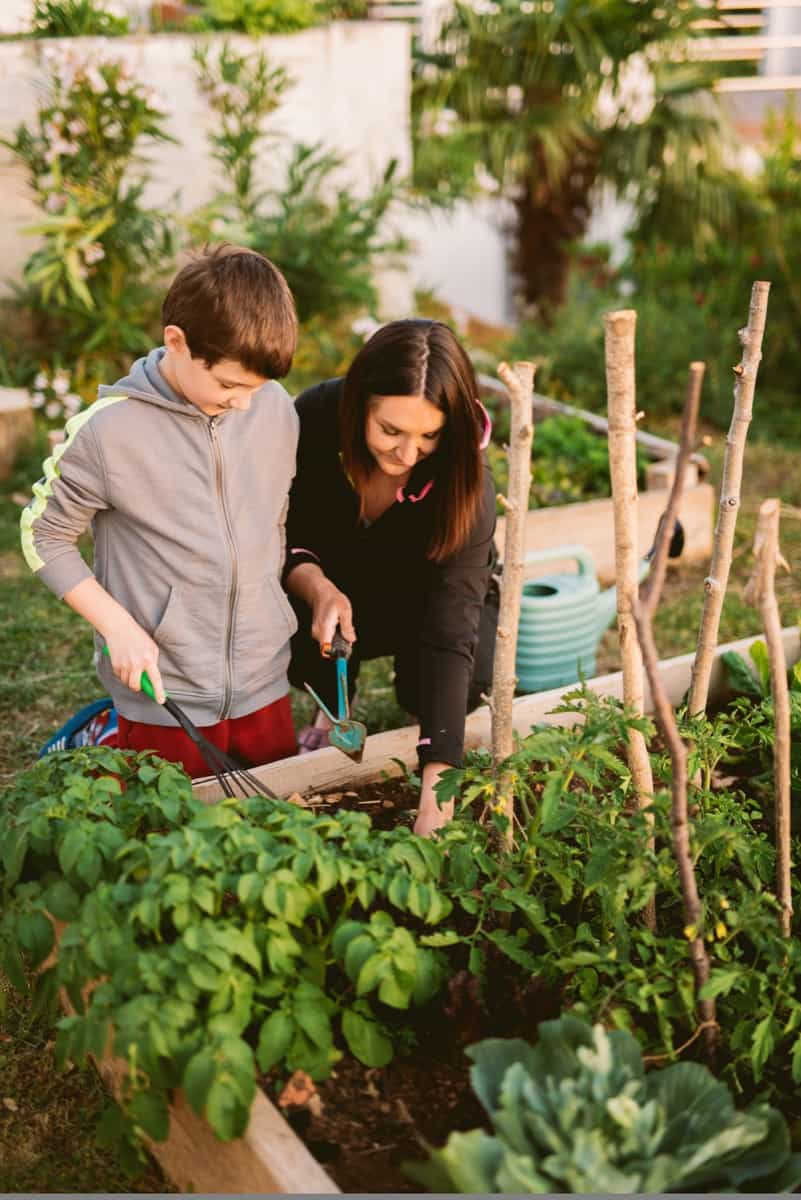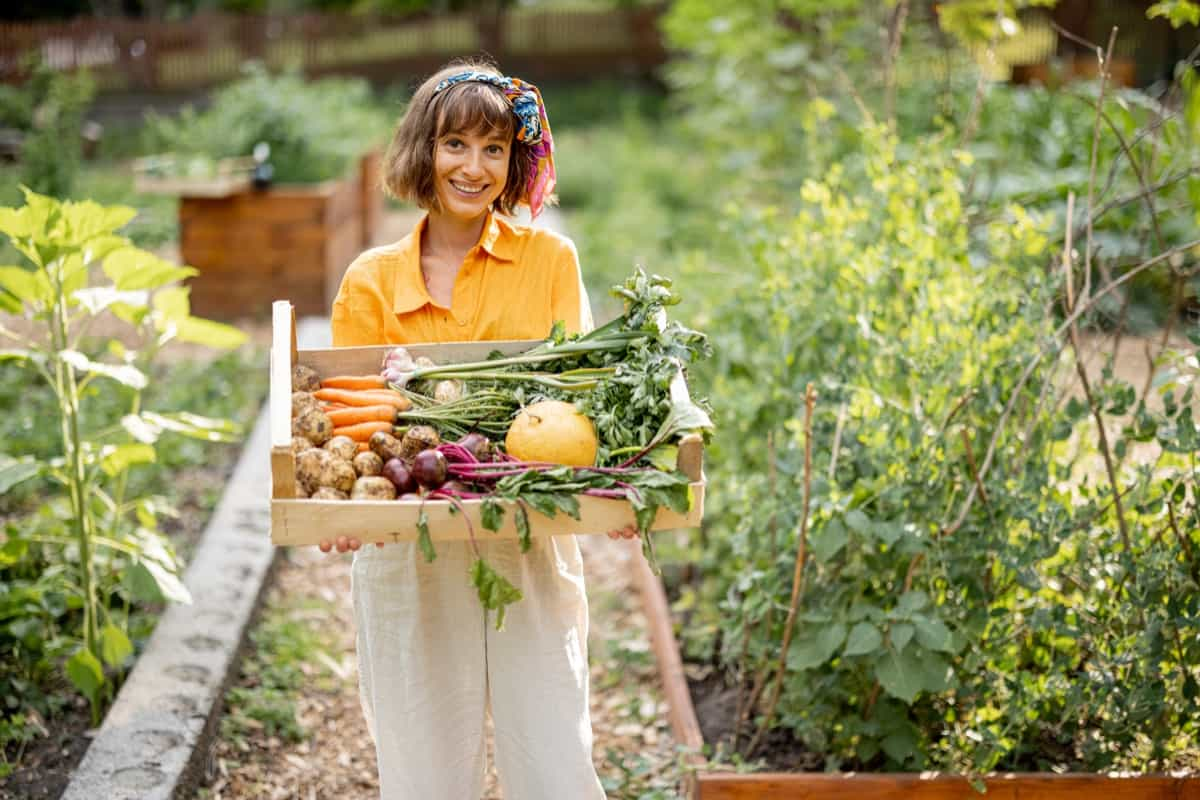North Carolina boasts a diverse climate, with coastal, piedmont, and mountainous regions, which offers a broad range of gardening opportunities. Those considering vegetable gardening in the state might wonder, “Can you grow vegetables year-round in North Carolina?” Absolutely, the answer is a clear yes, all thanks to the favorable climates found in various state regions.

From the cooler elevations in the west to the moderate temperatures of the coastal east, North Carolina offers a vegetable planting calendar tailored for success throughout the year. This guide explores what vegetables are easy to grow in North Carolina, focusing on season-specific cultivation. Using a North Carolina planting calendar ensures a fresh harvest in winter, spring, and summer, with some of the easiest vegetables to grow in North Carolina featured prominently.
Best Vegetables to Grow in North Carolina Gardens in Winter
Winter might seem dormant, but it’s an excellent time for vegetable cultivation in North Carolina. What vegetables can you grow in the winter in NC? Root vegetables and hardy greens thrive during this season. Carrots, turnips, and beets dive deep into the soil, insulated from the cold, while kale, collards, and Swiss chard resist the frost to provide fresh leaves.
The Piedmont and coastal regions are especially favorable for these vegetables, with the colder mountain regions suitable for hardier varieties. The key to winter gardening is selecting cold-resistant varieties and ensuring proper mulching to protect against harsh temperatures.
Summer Vegetables for North Carolina Gardens
In North Carolina, summer brings a vegetable gardener’s delight, as the sun shines brightly and temperatures soar. This season is optimal for heat-loving plants. Tomatoes, peppers, cucumbers, and squash flourish under the summer sun, especially in the warmer coastal and Piedmont areas.
Corn and beans also make great additions to the summer garden. To guarantee success during this period, gardeners should follow the North Carolina planting calendar, ensuring each vegetable gets planted at its ideal time. Regular watering is also crucial due to the increased evaporation rates.
Spring Vegetables for North Carolina Gardens
Spring brings about a rejuvenation of the soil and spirit in North Carolina. The milder temperatures and increased sunlight allow various vegetables to be cultivated. Lettuce, peas, broccoli, and radishes are excellent spring choices. These vegetables grow well in NC’s varied regions, from the mountains to the coast. Using a tailored planting calendar for North Carolina ensures that these vegetables get a head start, avoiding the hotter temperatures of summer that can hinder their growth.
In case you missed it: Easy and Best Container Plants for South Carolina: For Winter, Shade, and Full Sun (Summer)

Choosing the Right Varieties for North Carolina
While the state offers a versatile growing environment, choosing the right vegetable varieties is paramount for gardening success. Certain strains have been developed or identified for their resilience and productivity in North Carolina’s distinct regions. Whether farming in the cooler mountainous region or the balmy coastal areas, there’s a variety suited to that specific climate. Research and experience will aid gardeners in making the right choices, leading to bountiful harvests.
Preparing the Soil for Vegetable Gardening in North Carolina
Soil preparation is the foundation of a productive garden. North Carolina’s diverse regions mean varied soil types. Coastal regions typically have sandy soils, while the Piedmont and mountain regions might have more loamy or clayey compositions.
Enhancing the soil using compost and organic materials increases fertility and enhances both water retention and drainage abilities. Testing the soil for pH and nutrient levels provides insights into what amendments are needed. A well-prepared soil ensures that the chosen vegetables thrive and produce optimally.
Planting and Transplanting Techniques for North Carolina Gardeners
Sowing seeds directly or transplanting young plants requires care and knowledge. The depth and spacing are essential for direct sowing to ensure optimal growth. Transplanting, often used for vegetables like tomatoes and peppers, allows gardeners to start the growth indoors, offering a head start against pests and weather fluctuations.
When transplanting, it’s crucial to harden off plants by gradually exposing them to outdoor conditions. This step ensures they aren’t shocked by sudden temperature or light changes, guaranteeing a smoother transition and healthier growth.
Watering and Irrigation Strategies for North Carolina Gardeners
Effective watering is vital, especially during North Carolina’s hot and dry periods. Morning watering is recommended to reduce evaporation and give plants the hydration they need for the day’s photosynthesis. Drip irrigation systems or soaker hoses are ideal as they deliver water directly to the roots, minimizing wastage and preventing foliage diseases. Mulching around plants further conserves moisture and regulates soil temperature, making watering more efficient.
In case you missed it: Best Tasting Tomatoes to Grow in South Carolina: Time to Plant, Types, and Varieties

Pest and Disease Management in North Carolina Vegetable Gardens
Every garden faces challenges with pests and diseases. North Carolina’s diverse climates mean a range of potential threats. Aphids, caterpillars, and beetles can harm plants, while diseases like blight or wilt can affect productivity. Integrated pest management, combining organic and cultural practices, is sustainable. Crop rotation, natural predators, and organic sprays can be effective tools. Regularly inspecting plants and addressing issues promptly is crucial for a healthy garden.
Harvesting and Storing Vegetables
The culmination of a gardener’s hard work is the harvest. Knowing when to harvest ensures that vegetables are at their peak in flavor and nutrition. Vegetables like beans and zucchini should be picked regularly to encourage continued production. After harvesting, proper storage is vital for longevity and preserving quality. Root vegetables can be stored in cool, dark places, while leafy greens benefit from refrigeration. Properly stored produce can provide nourishment long after the growing season ends.
Fertilization Techniques for North Carolina Vegetable Gardens
Fertilization is essential in ensuring vegetable plants receive all necessary nutrients for growth and productivity. In North Carolina’s varied soils, it’s crucial to understand which nutrients might be lacking. While compost and organic matter enhance soil fertility, they might not provide all the essential minerals. A soil test can be instrumental in determining specific nutrient needs.
Based on these results, gardeners can apply organic or synthetic fertilizers to address any deficiencies. Following application guidelines is important to avoid over-fertilization, which can harm plants and leach into waterways. Time-release fertilizers or liquid feeds can be especially useful for vegetables with long growing seasons, ensuring they receive consistent nutrition.
Companion Planting for Enhanced Growth and Pest Control in North Carolina
Companion planting is an age-old gardening technique where certain plants are grown together for mutual benefits. This method can be particularly effective in North Carolina vegetable gardens for enhancing growth and controlling pests. For instance, planting marigolds near tomatoes can deter nematodes, while basil can repel harmful insects and possibly improve the flavor of tomatoes.
In case you missed it: Best Tasting Tomatoes to Grow in North Carolina: Time to Plant, Types, and Varieties

When planted with corn, beans can fix nitrogen in the soil, benefiting the corn. Understanding and implementing these beneficial relationships in the garden can lead to healthier plants, reduced pest issues, and potentially increased yields. This holistic approach works in harmony with nature, making the garden productive and more sustainable.
Conclusion
North Carolina’s varied climates offer year-round vegetable gardening opportunities. Residents can enjoy fresh, homegrown produce throughout the year with the right knowledge, preparation, and care.
- Ultimate Guide to Ossabaw Island Hog: Breeding, Raising, Diet, and Care
- Ultimate Guide to Juliana Pig: Raising Facts, Size, Diet, Care, and Lifespan
- Raising Lleyn Sheep: Disadvantages, Price, Uses, Characteristics, and Care
- Ultimate Guide to Meishan Pig: Breed Facts, Breeding, Raising, and Care
- Ultimate Guide to Teacup Pigs: Raising, Diet, Lifespan, Cost, and Care
- Guide to Raising Poll Dorset Sheep: Facts, Profile, Characteristics, Uses, and Care
- Ultimate Guide to Bighorn Sheep: Characteristics, Diet, Lifespan, Breeding, and Lifecycle
- Ultimate Guide to Raising Katahdin Sheep: Farming Facts, Breed Profile, Uses, and Care
- Ultimate Guide to Raising Oreo Cows: Belted Galloways Farming Facts, Profile, Uses, and Care